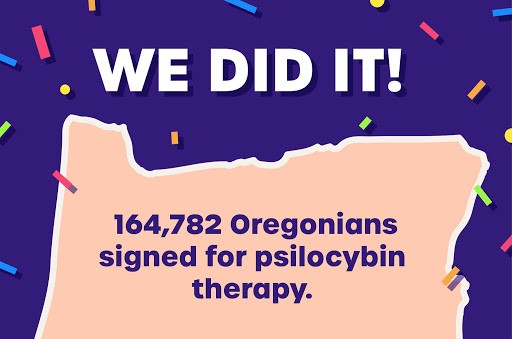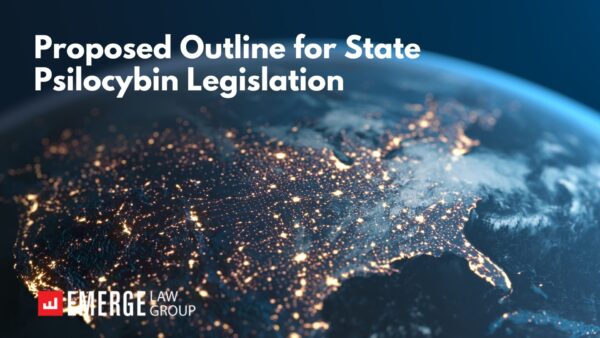On July 8, 2020, Oregon Initiative Petition 2020-034 (“IP 34”) officially qualified for the November 3, 2020 General Election ballot.
The sponsors of IP 34 submitted over 160,000 signatures, 132,465 of which were determined to be valid by the Elections Division of the Oregon Secretary of State. The number of signatures required to qualify for the ballot was 112,020, and so the sponsors gathered significantly more signatures than they needed, which is quite an accomplishment given that the COVID-19 pandemic substantially interfered with the signature gathering process.
The Elections Division will soon rebrand IP 34 with a new “Measure XXX” title. The measure number has not yet been announced, but will be at some point, probably before Labor Day.
The complete text of IP 34 can be found here. The certified ballot title, which will appear in the Oregon Voters’ Pamphlet, can be found here. The ballot title includes the following caption and “Yes” and “No” vote result statements:
• Caption: Allows manufacture, delivery, administration of psilocybin at supervised, licensed facilities; imposes two-year development period
• Result of “Yes” Vote: Allows manufacture, delivery, administration of psilocybin (psychoactive mushroom) at supervised, licensed facilities; imposes two-year development period. Creates enforcement/taxation system, advisory board, administration fund.
• Result of “No” Vote: “No” vote retains current law, which prohibits manufacture, delivery, and possession of psilocybin and imposes misdemeanor or felony criminal penalties.
IP 34 is the brainchild of IP 34’s two chief petitioners, Tom and Sheri Eckert. The Eckerts envisioned a therapy-based regulatory system that is unlike any cannabis, psilocybin, or entheogenic plant ballot measure, or law that has come before it, at least in the United States.
The most prominent and distinguishing feature of IP 34 is that the administration and consumption of psilocybin will be permitted: (i) only at a licensed “psilocybin service center;” and (ii) only under the supervision of a licensed “psilocybin service facilitator.” This means that the consumption of psilocybin, together with the entire hours-long process of experiencing its effects, will take place only in a controlled environment and only under the supervision of licensed and trained personnel.
This method of purchasing and consuming “psilocybin products” is the starkest difference between IP 34 and Ballot Measure 91 (2014), which legalized the adult use of cannabis in Oregon.
IP 34 is also significantly different than several local psilocybin and entheogenic plant ballot measures and laws that have passed in the last year or so. Those local measures and laws, which have been adopted in Denver, Oakland, and Santa Cruz, do not “legalize” psilocybin or entheogenic plants. Rather, they generally prohibit or discourage the use of local resources to investigate or prosecute the adult use or possession of such plants. They also have no effect on State criminal laws or penalties, and as such, are essentially local law enforcement policy statements.
Also, it appears that Oregon will be the only State that will vote on a psilocybin or entheogenic plant ballot measure on Election Day 2020. Sponsors in California filed a statewide initiative to decriminalize psilocybin, but failed to gather sufficient signatures to qualify for the 2020 ballot. And so, when it comes to psilocybin, all eyes will be on Oregon in November.
IP 34, also known as the Oregon Psilocybin Services Act (the “OPSA”), is a long ballot measure, totaling 71 pages and containing 134 sections. Many of the provisions are taken nearly verbatim from the Adult and Medical Use of Cannabis Act (ORS Chapter 475B). Many other provisions are completely unique and differ significantly from Oregon’s cannabis laws.
In a series of blogs to follow over the next several weeks and months, we will take a deep dive into the OPSA. Among other topics, we will discuss: (i) the OPSA’s two-year development period; (ii) the OPSA’s regulatory and licensing structure; (iii) the nature of psilocybin services, and the process of administering and consuming psilocybin under the OPSA; (iv) restrictions on ownership, including residency requirements; (v) confidentiality issues; (vi) tax issues; (vii) “opt out” procedures for local jurisdictions; (viii) potential reactions from the federal government, including the U.S. Attorney for the District of Oregon; (ix) potential business opportunities; and (x) legal issues for attorneys.
If you have any questions concerning the OPSA or psilocybin, entheogenic plants, or psychedelics in general, please contact Dave Kopilak, Sean Clancy, Kaci Hohmann, or Kaitlyn Dent from our psychedelics practice group.




